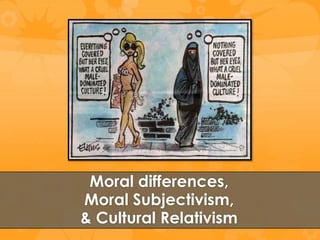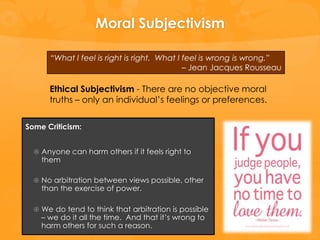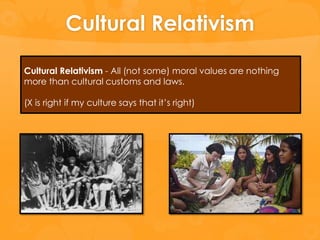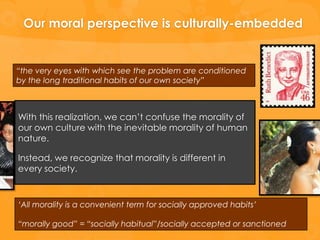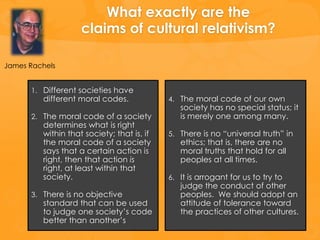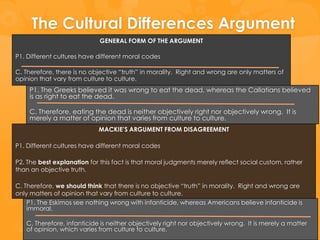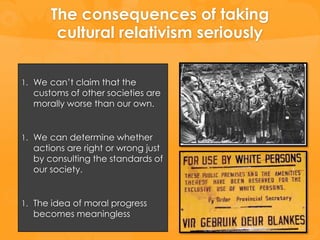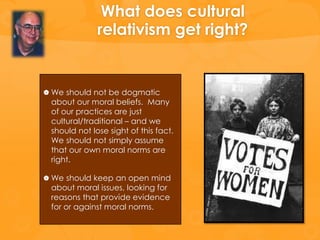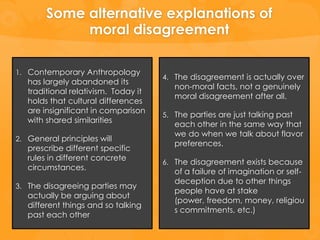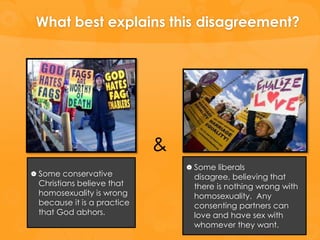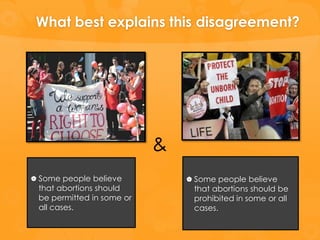The document discusses moral subjectivism and cultural relativism. [1] Moral subjectivism claims that there are no objective moral truths and that what is right or wrong depends only on individual feelings. [2] Cultural relativism argues that moral values are determined by cultural customs and that there are no universal moral truths, only cultural differences. [3] The document examines arguments for and against these positions, and considers whether moral disagreement across cultures implies there are no objective moral standards.
